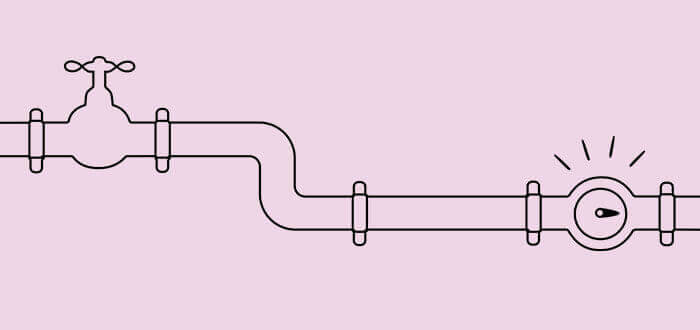A question we’re often asked as marketers is “Should I invest in SEO or PPC?” A simple question, but a not-so-simple answer.
Choosing between SEO and PPC ultimately comes down to individual circumstances. You need to look at your goals and objectives, budget, resources and more in order to decide which is right for you.
In truth, both can bring good results, and both are effective methods in driving traffic to your website, and worthwhile components of any digital marketing strategy.
But in order to succeed with either method, you need to know what their strengths and weaknesses are. In this article, we take an in-depth look at the “SEO vs. PPC” debate, including pros and cons, when to use them, and how you can use both together.
SEO vs. PPC: The short answer
The key difference between SEO and PPC is their form of traffic. Search engine optimisation is about improving organic traffic, and is a long-term process, whereas PPC is paid search traffic, and is very good at generating short-term results. Both work well when combined to work together, as we’ll talk about in more detail.
What is SEO (Search Engine Optimisation)?
SEO is a collective term for a number of techniques designed to optimise your website for organic search results on search engines such as Google and Bing. This is one of the most important elements of digital marketing strategy, because SEO is crucial in making sure your website is found.
We’ve seen a monumental shift in buyer behaviour, and today’s buyer is using the power of search engines to research and influence their purchasing decisions. That means if you’re not appearing in search results, your prospective buyer could very well not know you exist.
We could write an entire article on how to optimise your site for organic results, so here are a few things to consider:
- Technical SEO
- On-page optimisation
- Link building
- Content marketing
- UX testing
- And much more!
Advantages to using SEO
There are a number of advantages to using search engine optimisation in the long run.
For one, as alluded to, SEO is all about building long-term brand awareness. By maximising the number of organic search results your website is ranking well for, you’re increasing your website traffic and in turn building awareness for the brand, as your site becomes visible to more people and for more keywords or key phrases.
Taking that further, improving your organic ranking boosts your credibility and trust in the eyes of your audience. At least 75% of users never venture past page one of Google, meaning as someone is looking to make their buying decision, the more you appear in their research phase, the more credibility you build. That means maximising your organic keyword positioning in search results is all the more important.
One final advantage of SEO is cost and sustainability. SEO is more cost effective than PPC advertising in the long run, and can continue to provide you with consistent and sustained results.
Disadvantages to using SEO
The most noteworthy disadvantage to using SEO is the fact that it takes time, especially for a new business or domain. It can take months for your organic traffic and keyword rankings to improve, whereas PPC can generate results a lot faster. Some keywords can be so competitive to win because your competition is likely to be trying to optimise for them too.
SEO is also an ongoing process that will require continued investment. As mentioned earlier, there are many elements of SEO, and to maintain all of them will require you to invest in SEO support, whether it be through an agency or in-house specialist.
What is Pay-Per-Click (PPC) Advertising?
PPC advertising is where you pay for clicks to your website, most commonly associated with Google Ads. However, in recent years, many social media platforms such as Facebook and LinkedIn have launched their own pay-per-click models.
NOTE: Social media PPC is different to the Google Ads PPC. Social media platforms offer a huge range of demographic and niche targeting options that you cannot match with Google Ads which is largely based on keywords, key phrases, location, bidding strategy and so on.
A great feature of Google Ads is this ability to remarket to users. For example, if someone has clicked on your ad or landing pages, you can set up another PPC campaign to remarket to them specifically, in an effort to convert them into a lead or sale.
Advantages to using PPC
The biggest advantage of pay-per-click advertising is that it allows you to see almost instant results. Almost immediately after setting your ad campaign live, you’ll start to see traffic, clicks and conversions, which can take months to garner if you chose SEO instead.
PPC is also great for granular, highly detailed keyword and location targeting, as you can narrow down your target audience based on a variety of demographic data. This gives you the option to customise your messaging to specific audiences, and provide a highly personalised experience.
Ad campaigns have greatly improved in variety in recent years. You can run search ads, display ads, shopping ads and more, which in turn gives you the freedom to perform quick experiments to test what works for your audience.
Disadvantages to using PPC
Unlike SEO, the biggest drawback of using PPC is the cost, as you pay for every single click to your site from an ad. This can make your ads prohibitively expensive, especially if your chosen keywords have a high cost-per-click. This also means that you have to pay money in order to get results, but in doing so, the more you spend, the more likely it is that you’ll generate results.
Similarly, ad campaigns can lose their effectiveness in the long run, because people will begin to see your ads too often, making your ads appeal stale. Not only that, if you were to deactivate your ads, your paid traffic effectively stops overnight, meaning you’ll lose that traffic source.
SEO vs. PPC? Try using both together
Until now in this blog post, we’ve presented advantages and disadvantages to using SEO or PPC, but in an ideal world, we would recommend using both together. Both have elements that compliment each other when used synergistically.
Here are a few benefits to using both together:
- Test your keyword straight with pay-per-click campaigns before committing to a longer-term SEO strategy.
- Use your keyword and conversion data from ad campaigns in your organic SEO content.
- High-cost keywords (if still important) can be moved from PPC to SEO.
- Increase confidence and brand awareness by having investing in both strong organic and paid visibility.
- Use remarketing campaigns to stay front-of-mind with organic visitors by customising messaging around their engagement with your site.
- Plan your keywords across the entire customer journey, and think about what are more beneficial for ad campaigns, and which for longer term SEO.
Which works best for you?
We hope this blog post has provided you with some insight into whether you should prioritise SEO or PPC as part of your digital marketing strategy.
If you’re still undecided, or some help with implementing your strategy, get in touch with us to see if we can help.


